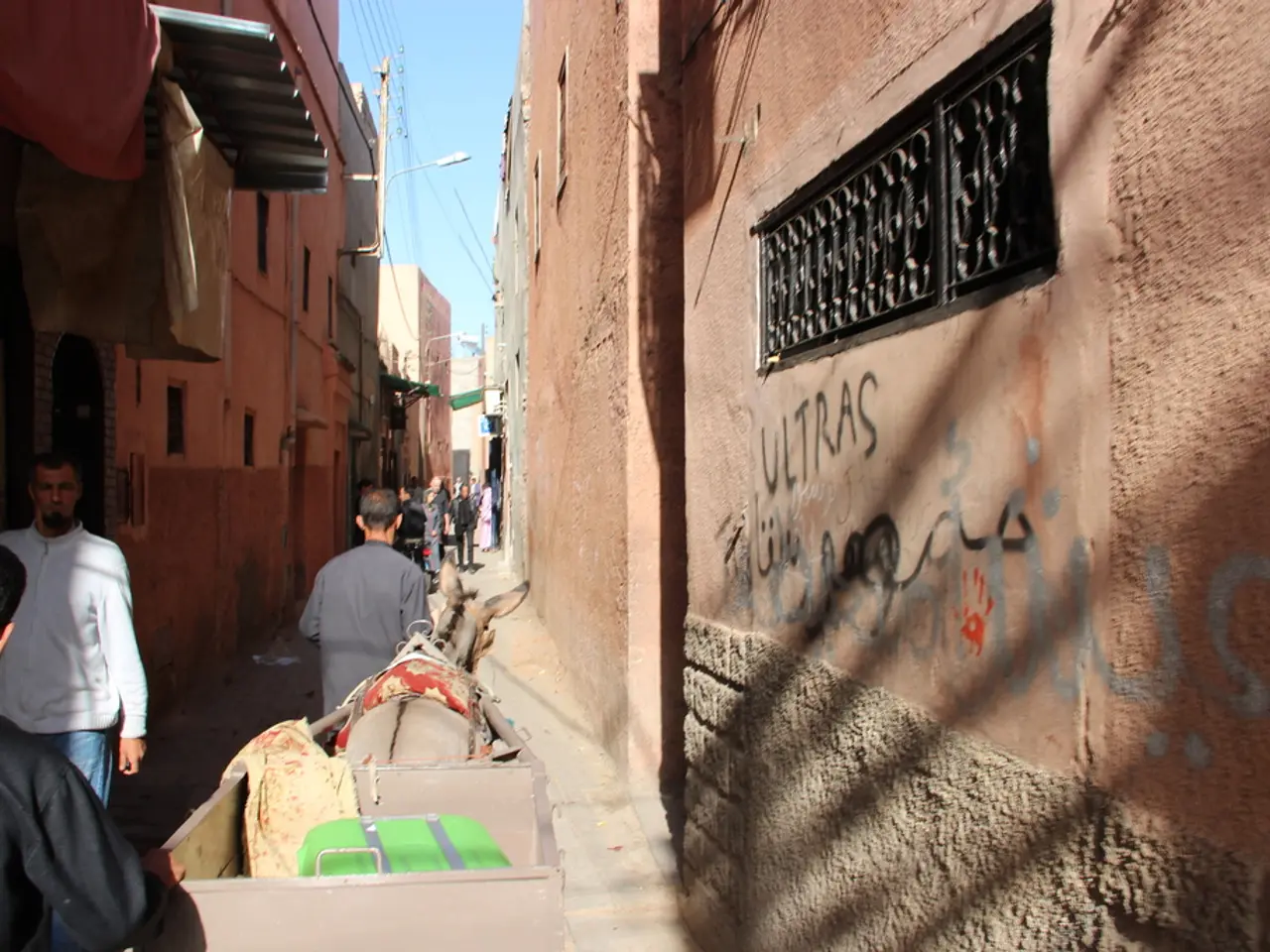Australia decides to acknowledge Palestine's sovereignty, aligning with Canada, France, and the United Kingdom. New Zealand may potentially do the same.
Australia and Other Western Countries Recognize Palestine Amidst Israeli Conflict
Australia has joined a growing number of Western countries in formally recognizing the state of Palestine, a move driven by widespread condemnation of Israel's actions in Gaza and a push for a two-state solution [1][2]. This shift marks a significant change in traditional Western policies, with countries like the UK, France, and Canada aligning with Australia’s position in expressing support for Palestinian statehood [2].
The Australian Prime Minister, Anthony Albanese, stated that a political solution, not a military one, is needed to resolve the conflict. He emphasized that Australia's recognition is conditional and intended to support Palestinian elections excluding Hamas, signaling a nuanced diplomatic approach [2][3].
Israel, under Prime Minister Benjamin Netanyahu, has rejected this international pressure, with Israeli officials swiftly condemning the decision [1]. The Israeli Ambassador to Australia, Amir Maimon, called it "unilateral recognition" that Israel rejects.
The international community, including rights groups, applauds these recognitions as a necessary diplomatic push, but skepticism remains about their practical impact absent progress toward a negotiated two-state solution [1]. Wider Western recognition ahead of the UN General Assembly could increase diplomatic pressure but is unlikely to shift the conflict’s dynamics without US and Israeli engagement [1].
In Australia, the response to the decision is mixed. Sussan Ley, the Liberal Party leader, criticized Albanese's decision, stating it undermines efforts to free Israeli hostages still held in Gaza and leaves Hamas in power. On the other hand, the Australian Greens welcome the recognition of a Palestinian state but consider it insufficient in addressing public demands for concrete measures against Israel [2].
The Australian Palestine Advocacy Network (APAN) stresses that Palestinian rights "are not a gift to be granted by Western states" nor dependent on the approval of "colonial oppressors." APAN dismisses the announcement as a "political fig leaf" that allows Israel's "genocide and apartheid" to continue, while distracting from Australia's role in "Israeli war crimes via ongoing weapons and components trade."
Foreign Minister Penny Wong warned that there is a risk there will be no Palestine left to recognize if the conflict continues unabated. The decision is contingent on assurances from the Palestinian Authority, including the exclusion of Hamas from any future Palestinian state. The recognition aims to support global efforts toward a two-state solution, secure a ceasefire in Gaza, and ensure the release of hostages.
As the situation unfolds, it is crucial to stay informed. Follow [website link], our Instagram, and Facebook page for the latest news updates on this developing story.
References: [1] ABC News Australia. (2023). Australia to recognise Palestinian state. Retrieved from https://www.abc.net.au/news/2023-08-01/australia-to-recognise-palestinian-state/138979224
[2] The Guardian. (2023). Australia to formally recognise Palestinian state. Retrieved from https://www.theguardian.com/world/2023/aug/01/australia-to-formally-recognise-palestinian-state
[3] The Sydney Morning Herald. (2023). Albanese to recognise Palestinian state at UN General Assembly. Retrieved from https://www.smh.com.au/politics/federal/albanese-to-recognise-palestinian-state-at-un-general-assembly-20230801-p5933u.html
- The recognition of Palestine by Australia and other Western countries, amidst the Israeli conflict, signals a shift in traditional policies towards more active diplomacy and policy-and-legislation support for a two-state solution, which is a significant development in war-and-conflicts politics.
- Despite the international community's applause for the recognitions, the success of these efforts in addressing the Israeli-Palestinian conflict remains uncertain, as they are unlikely to substantially change the conflict's dynamics without engagement from the US and Israel, a common thread in general-news reports.








